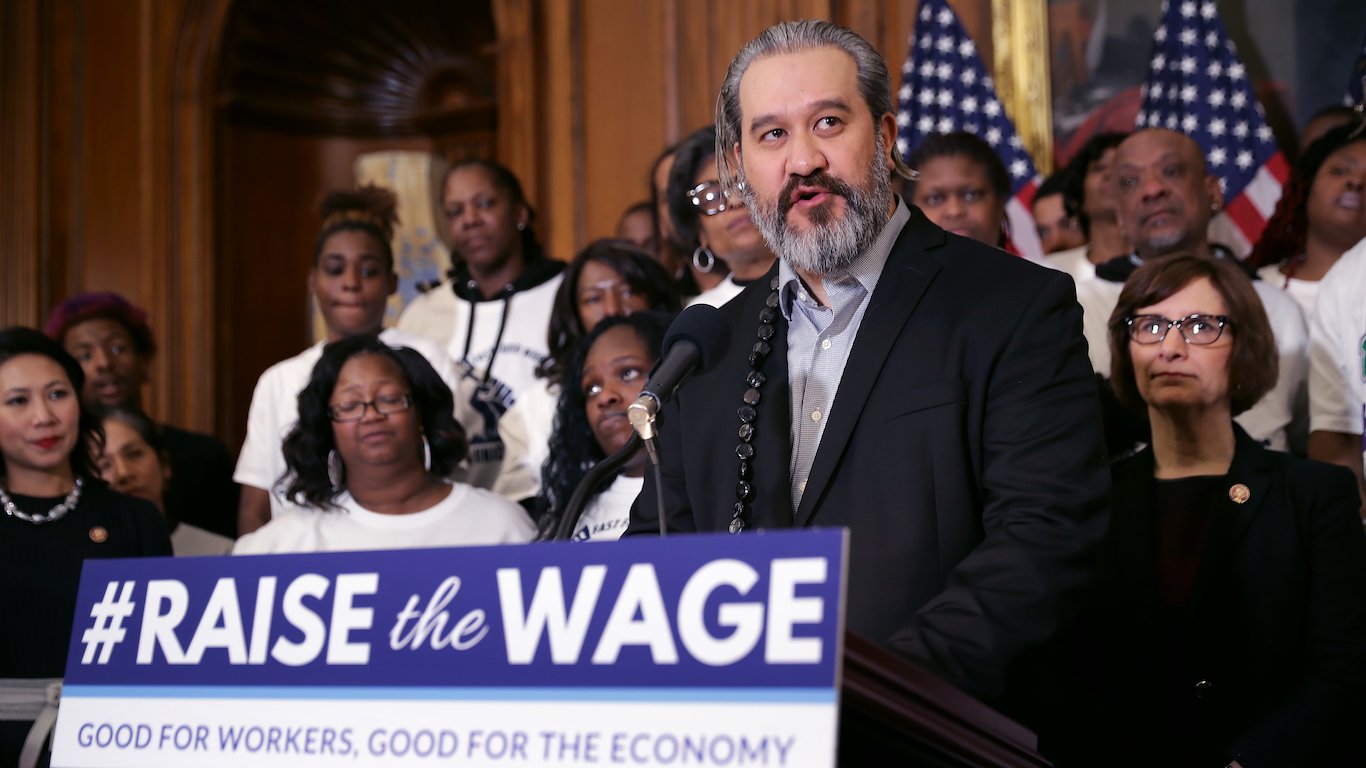

The minimum wage has been raised in a number of states and cities recently. Wage increases in 28 states went into effect at the start of this year and three more states and the District of Columbia will see automatic increases later this year.
A major issue surrounding the minimum wage is whether the federal government will raise its base, or whether changes will only come at the state and local level. A new study indicates that if the federal minimum wage is raised to $15, it will increase the pay of about 40 million by 2024.
The federal minimum wage is $7.25 and has been at that level since 2009. Some people who work on federal programs get a higher minimum. The $7.25 rate is well below the figure in a large number of states, and less than half the new $15 minimum in cities like Seattle and New York.
The Economic Policy Institute (EPI), a liberal economic research think tank, has analyzed the effects of proposed legislation that lifts the federal wage to $15 an hour by 2024. The group notes the positive effects of the increase on several groups: 39.7 million workers overall would benefit, including 38.6 million adults ages 18 and older, 23.8 million full-time workers, 23 million women, 11.2 million parents, 5.4 million single parents, and the parents of 14.4 million children.
Women and people of color would reap the greatest benefits from a $15 minimum wage. Women comprise 57.9% of workers who would benefit from the increase even though there are more males in the U.S. workforce. The gains for people of color are even more disproportionate. Some 38% of black workers and 33% of Hispanic workers would get pay increases, far above their respective shares in the total U.S. workforce.
The impact on women may have particularly widespread effects. The EPI reports that a parent who is the family’s sole breadwinner and who is earning today’s federal minimum wage “does not earn enough through full-time work to bring her family above the federal poverty line.” A study published last year by digital media and entertainment company Refinery29 and Chase indicated that in 40% of U.S. households, women are the breadwinners and 63% of those women are single mothers; moreover, 23% of households with children live with a single mother.
The EPI report underscores the effect that a federal minimum wage of $15 an hour would have on redressing the erosion of the minimum wage as a result of inflation. In real dollar terms (that is, adjusted for inflation) if a $15 minimum is adopted, by 2021 the federal minimum wage would exceed its 1968 inflation-adjusted high point of $10.15. As of last year, the federal minimum wage was worth 28.6% less than it was in 1968.
If a $15 federal minimum wage were in place in 2024, the annual wage of $26,992 would exceed the poverty threshold of $25,100 for a four-person family. That has never happened before–even in 1968, the real minimum wage was only high enough to maintain a three-person family above the poverty threshold.
The impact of higher wages on employment is an often-cited objection to raising the federal minimum wage. The argument is that employers won’t be able to afford it, jobs will be lost, hours for existing employees will be reduced, and economic growth will stop. EPI cites studies from John Schmitt, Daniel Kuehn, Paul Wolfson, and Dale Belman that concluded that potential reductions in hours worked or job cuts that might follow from wage increases “were apparently not large enough to reduce overall annual earnings for low-wage families.”
Congress is now considering legislation called the Raise the Wage Act of 2019 that would lift the federal minimum from $7.25 an hour to $15 an hour over the next five years. EPI concludes that anything less than that increase would be “needlessly timid” and have the effect of depriving millions of low-wage workers of income they could have had “with little cost.”
Sponsored: Attention Savvy Investors: Speak to 3 Financial Experts – FREE
Ever wanted an extra set of eyes on an investment you’re considering? Now you can speak with up to 3 financial experts in your area for FREE. By simply
clicking here you can begin to match with financial professionals who can help guide you through the financial decisions you’re making. And the best part? The first conversation with them is free.
Click here to match with up to 3 financial pros who would be excited to help you make financial decisions.
Thank you for reading! Have some feedback for us?
Contact the 24/7 Wall St. editorial team.



